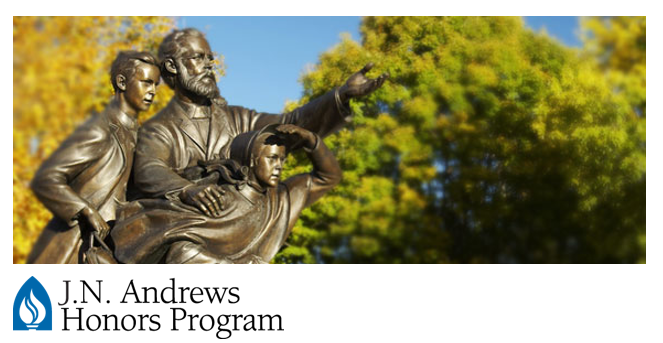Date of Award
4-6-2018
Document Type
Honors Thesis
Department
English
First Advisor
L. Monique Pittman
Abstract
George Herbert's collection of poems, The Temple (1633), portrays a reciprocal relationship between the human and divine, suggesting that humans are to house the glory of God and abide in Him. He seeks to portray the soul's internal architecture, with an allusion to the human heart as God's dwelling place. He uses his poetry to explore this relationship to a coexisting God, and through the framework of human-as-temple, the theme of habitation becomes prominent in his work. In "Love (III)" from The Temple, Herbert illustrates this, showing that just as God dwells in our hearts, we also receive sustenance and restoration from Him. "Love bade me welcome," from Ralph Vaughan Williams' Five Mystical Songs (1911), places "Love (III)" in conversation with a musical score. An interdisciplinary analysis of Herbert's poem and Vaughan Williams' song demonstrates how the musical composition enlarges Herbert's dyadic vision of communal spirituality. Through interpolation and scoring choices, Vaughan Williams depicts the individual's participation in a wider holy community, and adapts Herbert's representation of God to invoke the Trinity as a model for Christian society.
Recommended Citation
Hwang, Nicole M., "In the House of God: Divine Authority and the Collectivity of Spiritual Experience in George Herbert's The Temple and Ralph Vaughan Williams' Five Mystical Songs" (2018). Honors Theses. 188.
https://dx.doi.org/10.32597/honors/188/
https://digitalcommons.andrews.edu/honors/188
Subject Area
Herbert, George, 1593-1633. The temple; Vaughan Williams, Ralph, 1872-1958. Five mystical songs; Spirituality; Mystical union; Temple of God; Presence of God
Creative Commons License

This work is licensed under a Creative Commons Attribution-No Derivative Works 4.0 International License.
DOI
https://dx.doi.org/10.32597/honors/188/
Files over 3MB may be slow to open. For best results, right-click and select "save as..."



